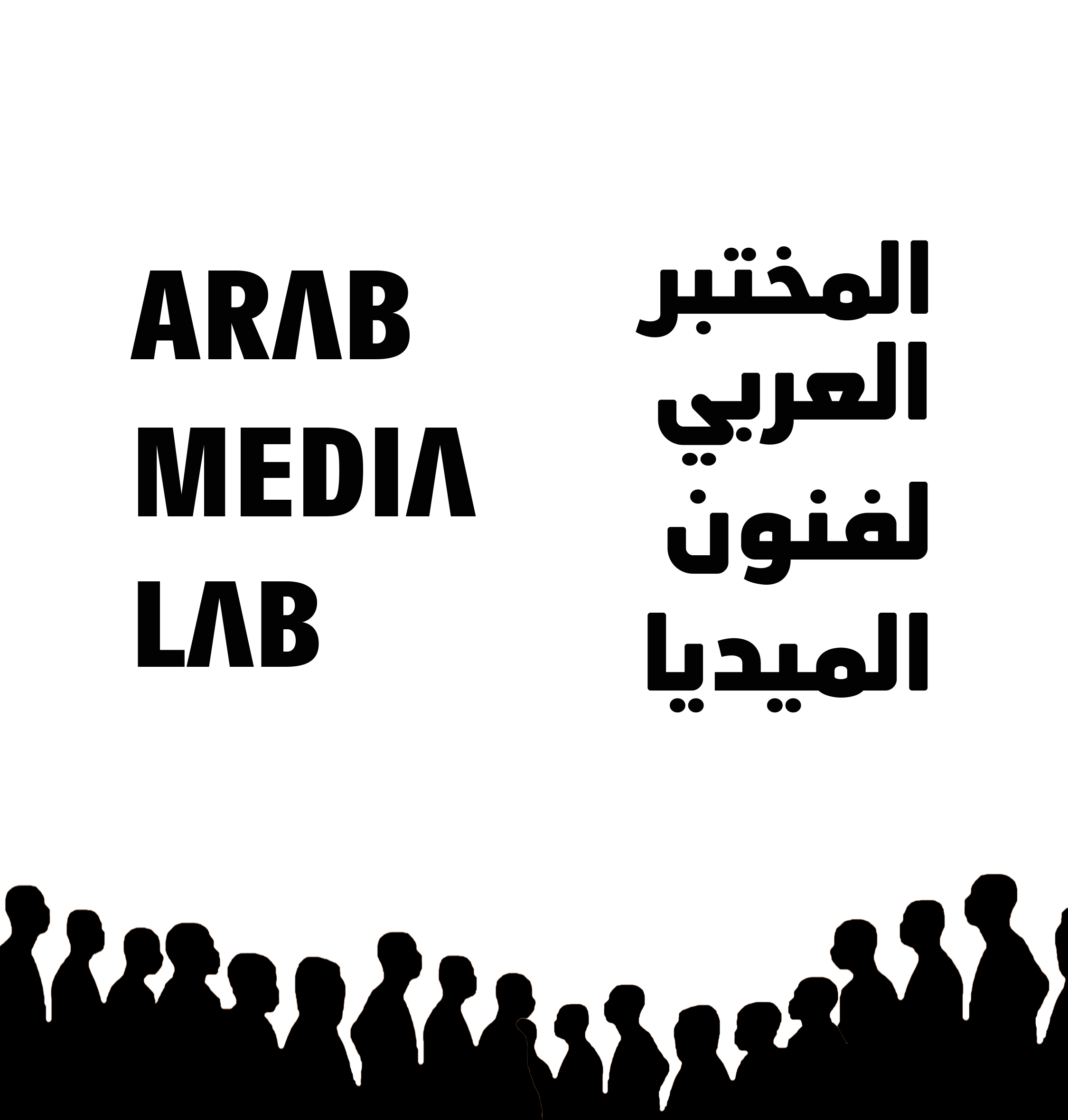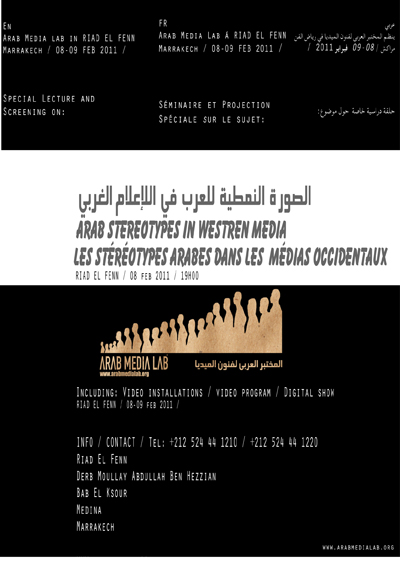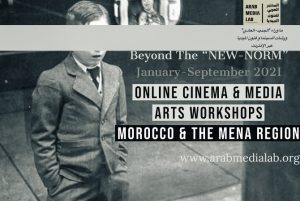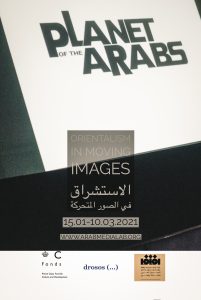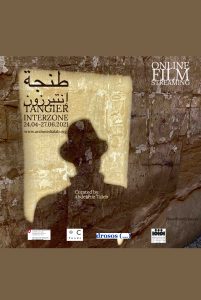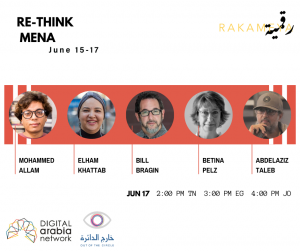A special event on – ARAB STEREOTYPES IN WESTERN MEDIA – / Animated by Arab Media Lab project Directors and Filmmakers: Abdelaziz Taleb, Abdellatif Benfaidoul , featuring Dounia Benqassem ( Art Historian ) and Jesus Greus ( Writer )
Lecture:
Raid El Fenn / Date 8th February / Time :19h00
For a visual overview, Please see our gallery section or click Here
Including Video installations, video program, and Digital show.
Riad El Fenn / 8th – 9th February
Riad El Fenn
Derb Moullay Abdullah Ben Hezzian
Bab El Ksour
Medina
Marrakech
Arab stereotypes in western Media Lecture: Much of the perception of Arabs in the West is based on illusion. The Western media has largely created the false, illusory images of Arabs. Numerous leading media organizations, film producers, journalists and TV hosts have been openly hostile to Arabs. It is clear that the stereotypes of the Arabs is not just the result of the news, but of a continued habit on the part of Hollywood to present them as villains, terrorists, and bad people. It is a greater problem with Western society; the tendency to make bold assumptions about an entire race of people and present these people not as rounded and developed characters or – real- people, but instead as one of many negative images; the gun-toting terrorist, the evil camel-riding sheik, or the oppressive man lording over a woman. In the seminar, we will discuss the development of this stereotype, starting form the earlier Hollywood films, until now day films and media news.
More info ARAB STEREOTYPES IN WESTERN MEDIA
Screening of the film documentary:
REEL BAD ARABS: How Hollywood Vilifies a People, Directed by Sut Jhally, 50 min.
This groundbreaking documentary dissects a slanderous aspect of cinematic history that has run virtually unchallenged form the earliest days of silent film to today’s biggest Hollywood blockbusters. Featuring acclaimed author Dr. Jack Shaheen, the film explores a long line of degrading images of Arabs–from Bedouin bandits and submissive maidens to sinister sheikhs and gun-wielding “terrorists” – along the way offering devastating insights into the origin of these stereotypic images, their development at key points in US history, and why they matter so much today. Shaheen shows how the persistence of these images over time has served to naturalize prejudicial attitudes toward Arabs and Arab culture, in the process reinforcing a narrow view of individual Arabs and the effects of specific US domestic and international policies on their lives. By inspiring critical thinking about the social, political, and basic human consequences of leaving these Hollywood caricatures unexamined, the film challenges viewers to recognize the urgent need for counter-narratives that do justice to the diversity and humanity of Arab people and the reality and richness of Arab history and culture.
